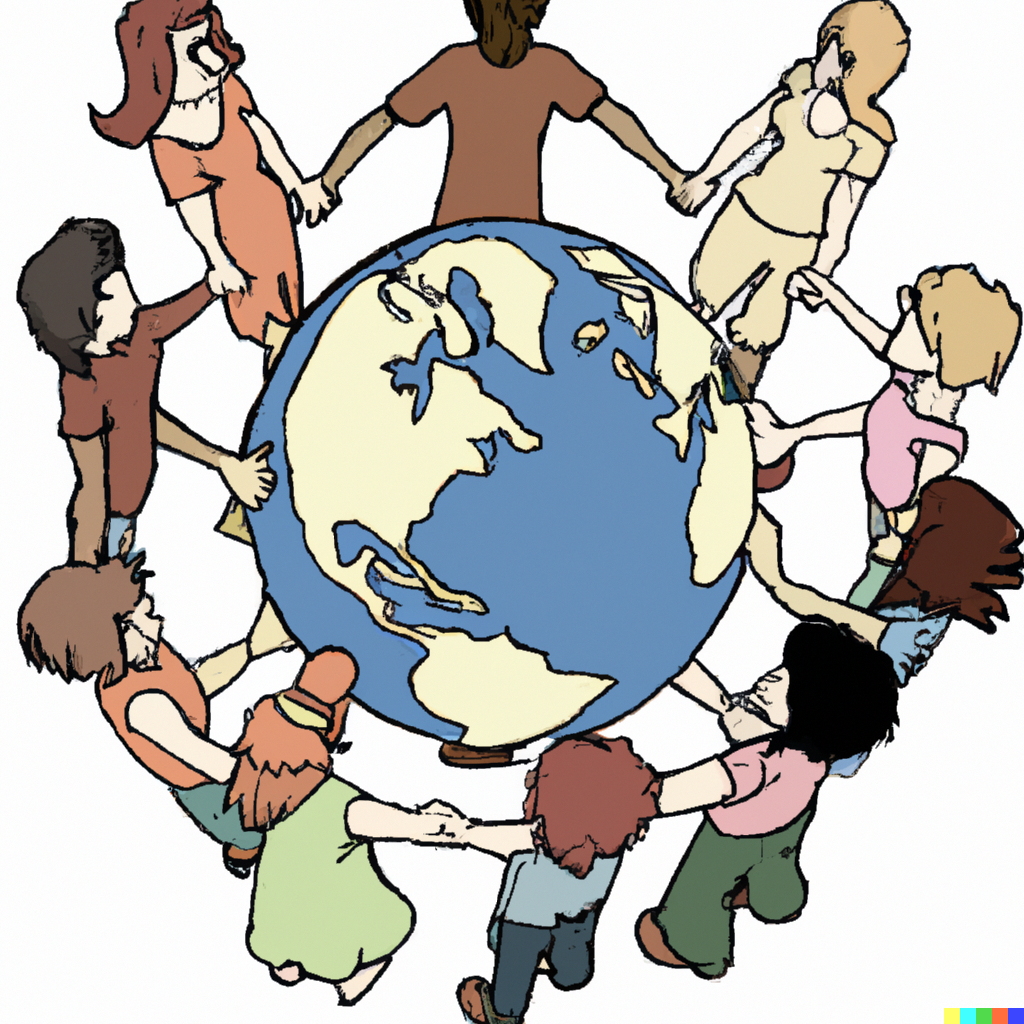In-group

Creating the Universal In-Group
There is a natural tendency for humans to define themselves in terms of in-groups and outsiders.
This makes sense from an evolutionary perspective, but in a globally connected society it can lead to chaos. There are so many overlapping in-groups that cross all national and cultural borders that attempting to define them in any way creates tons of exceptions.
The only morally defensible in-group when it comes to the utilitarian ethical calculus is all humans, and outside the realm of survival that should be expanded to also include all living things. Any hierarchical subdivision is inherently unjust.
A primary goal of metaculture is to establish the common source of our shared humanity in order to bridge the gaps between cultures and allow for the creation of a universal in-group. This is what will enable us to finally get on the same page and work together to solve problems that face us on a global scale. Climate change and overpopulation leading us towards environmental collapse is the most pressing, though a future asteroid or alien invasion will also be easier to confront as a unified species.
Religion has been the primary way that humans have defined their in-groups and out-groups since the dawn of civilization. This is unlikely to change soon. Therefore, a universalist movement will be necessary to create a universal in-group. And since humans have an innate sense of logic and reason, it will also need to adhere fully to the evidence revealed by science. Only a movement that fully embraces both will have a chance at creating a universal in-group.
Seeking Commonalities in Conversations
Most online discourse, especially that of the political or religious variety, takes on a confrontational tone. We tend to read other people's writing with an eye for differences between their ideas and our own, then take to the comments to defend our ideas against the perceived attack. This becomes a natural impediment to building bridges and creating that universal in-group.
This can be counteracted with mindful reading. Instead of picking apart an argument and exposing its flaws, focus on the parts where you agree. Assume that the other person isn't an idiot, and possesses thoughts and knowledge beyond the few sentences you have read. If they are trolling, ignore them. But if someone is willing to engage in conversation with you, and your goal is to build bridges, then it helps to give people the benefit of the doubt and focus the conversation on your common ground.
The Persuasion page covers this topic in detail.
Enforcement of Norms
Enforcement of cultural norms through taboos is only effective within one's in-group. A global culture with a universal in-group will enable humanity to share and enforce non-legally binding social norms that will be needed to prevent bad actors, such as spreaders of misinformation, from gaining influence on social media and other globally connected platforms.
The most prominent modern example of evolving social norm enforcement is cancel culture. While this has helped advance the causes of inclusivity and helped made racism and misogyny more taboo, it also tends to only work on members of the in-group that is doing the cancelling. How many minor celebrities were canceled by liberals in the media, only to be embraced by conservatives? Without the universal in-group, cancel culture tends to promote polarization and contrarian reactions as much as it reinforces the values of inclusivity.
Norm enforcement must also be fair. When it seems like people are being libeled unfairly, the trust in the taboo breaks down, and once again you encourage polarization over consensus.
It is necessary that a supermajority of people agree on the norms being enforced and a fair system for applying them before they can be effective at reinforcing new cultural values instead of being a wedge that reinforces sectarianism.
Universalist Strategies
The entire philosophy of metaculture is designed to encourage a mindset of unity and oneness, and to resist polarization and conflict. It uses an integrated, holistic strategy to bridging the divides between people and constructs its narrative around that goal. Even the wiki platform was chosen for its ability to allow the message to be translated to multiple languages or even presented differently for different generations, religions, or subcultures, in order to maximize its meaning to each reader.
Other strategies employed to reinforce the message of unity and the creation of the universal in-group include:
- Science and evidence are the basis for all beliefs. No unprovable assertions are made.
- Finding common goals is used as the primary rhetorical strategy.
- Tries to provide something for everyone when addressing core values.
- Uses metaphor mapping to reinforce core beliefs instead of denying them.
- Focuses on holistic values and universal beliefs without taking positions on uncertain and polarizing issues unless the evidence is overwhelming.
Us Bias
We are inherently biased towards our in-group, preventing us from objective critical analysis of statements made by others within our in-group. This has been a major factor in the spread of misinformation on social media.
Them Bias
Defining an in-group necessitates defining an out-group, which if not ignored is usually considered an "enemy" or rival to be opposed at any opportunity. This can lead people away from critical thinking and towards contrarianism.
Readers and Watchers
Are you a reader or a watcher? Whatever your in-group we have you covered!